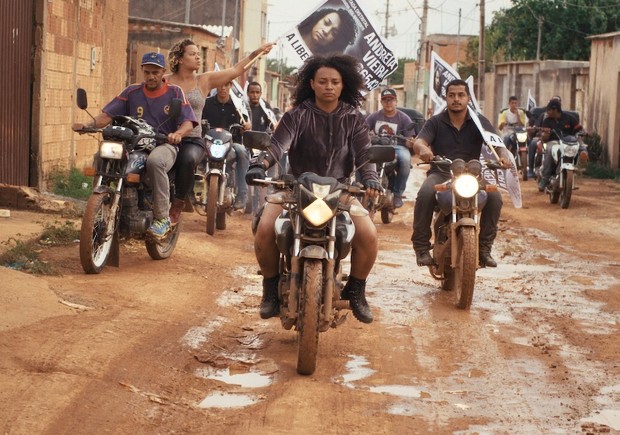The rise of Jair Bolsonaro’s right-wing mix of populist nationalism and hyperbolic authoritarianism has made life increasingly difficult for anyone who finds themselves in a minority group in Brazil. While the militarised police take an increasingly robust stance towards crime, anything deemed even marginally liberal often finds itself in conflict with the law. The pandemic has thrown millions back into poverty, but people born in deprived areas are almost destined for a life of crime or destitution. Dry Ground Burning tackles many of these issues.
Chitara (Joana Darc Furtado) leads a gang of ‘gasolineira’ who steal oil from the underground pipes to earn a living. They have an agreement to sell this to a biker gang called the ‘motoboys’, who provide protection and security in the favela. Often in the face of increasingly violent and demonstrative policing. The story is told from the perspective of her sister Léa (Léa Alves da Silva), an ex-con trying to go straight.
Dry Ground Burning meshes the fictional and factual worlds together to create an experience which lingers somewhere inbetween. Joana Pimenta and Adirley Queirós’s film will be challenging in its length and structure, but there is much to admire here. The first half, in particular, is full of great shots, sequences and toned-down pacing. Dry Ground Burning is a scathing critique of modern Brazil and a vibrant portrait of the rapidly increasing underclass.
Dry Ground Burning previews at the ICA on 30 August.










No Comment